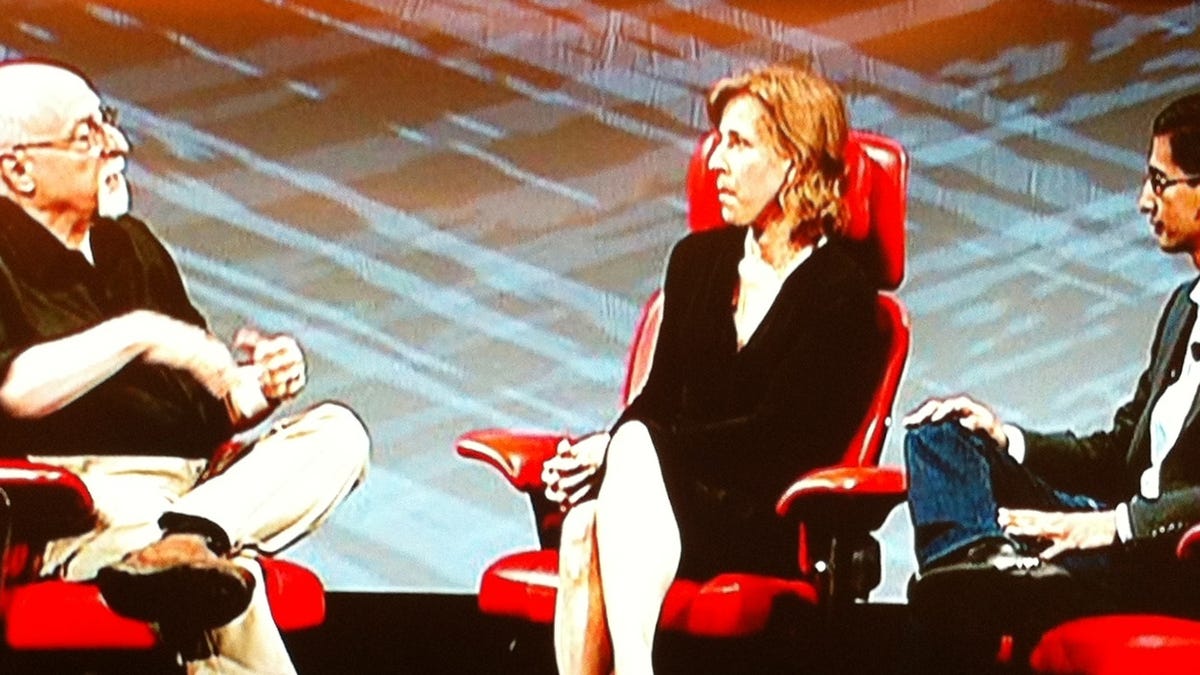Google execs on piracy: It's not a technical problem
Ari Emanuel was wrong, Googlers say. Piracy can't just be solved by technology. It requires lawyers.

PALOS VERDES, Calif. -- At the D conference today, a pair of top Google execs rebutted the contention made the night before by Hollywood agent Ari Emanuel that Google should be doing much more to combat piracy.
Emanuel had equated piracy of content to child pornography, and said that if Google could filter the pornography (which it does), then it could filter for pirated content, especially that which is sent overseas.
Susan Wojcicki, Google's senior vice president of advertising, said it doesn't work that way. "I think he was misinformed," she said. "Very misinformed."
She went on: "We do not want to be building a business based on piracy. So we invested a huge amount in Content ID." She explained the system: Content owners send Google data about content, and then they can decide to whether to keep their content online on Google's services (and monetize it) or pull it down.
But that's not enough to solve the problem. "Identifying copyright is very difficult. It's not child porn, where you see it and you know it."
Sundar Pichai, Google's senior vice president of Chrome & apps, chimed in: "It's a tough thing to scan through a video and know if it's copyrighted. We've spent $30 million on this project."
Google honors DMCA take-down requests fast, within hours, and pulls down over 1 million items a month, Pichai said.
But Google's technology solutions don't fix the underlying issue, Wojcicki added. "This is not a technical problem. We can identify the content. This is much more a business issue. Ask a bunch of lawyers who owns this content, and I'm sure they won't agree." Furthermore, she said, there may be different copyrighted elements in a single video, like music tracks.
"If we're given something, we can solve all the technical parts. But we have to hear from the content owner. There's no formula or algorithm for this."
Pichai said he'd be happy to talk to Emanuel to discuss the issue.
Update at 1:19 p.m. PT: Ari Emanuel has written that he wants to work with technology companies on this issue. "It's time for Hollywood, our government and Silicon Valley to step up and collectively resolve this problem. Let me know where and when and I'll be there," he wrote, in a letter run on All Things D.

